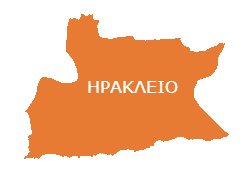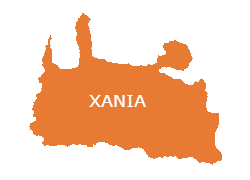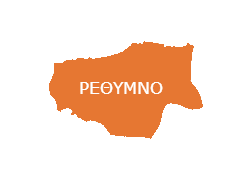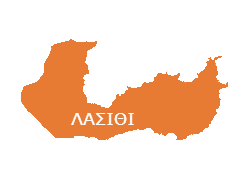
Θ Μαλκίδης
Σταματώντας προσωρινά την Αλήθεια
Ο Λίντσεϊ Γκράχαμ, γερουσιαστής και συνεργάτης του Τραμπ, μπλόκαρε το ψήφισμα για την αναγνώριση της γενοκτονίας των Αρμενίων και από τη Γερουσία, μετά τη συνάντηση Τραμπ - Ερντογάν.
Ο Γκράχαμ, που ήταν «παρών» στη συνάντηση Τραμπ – Ερντογάν στον Λευκό Οίκο, στη συνέχεια μπλόκαρε το ψήφισμα για την αναγνώριση της γενοκτονίας των Αρμενίων και από τη Γερουσία που είχε εγκρίνει τον Οκτώβριο η Βουλή των Αντιπροσώπων των ΗΠΑ.
Ο γερουσιαστής των Δημοκρατικών, Ρόμπερτ Μενέντεζ, ζήτησε συγκατάθεση προκειμένου να περάσει το ψήφισμα που θα παρείχε «επίσημη αναγνώριση και υπενθύμιση» της γενοκτονίας των Αρμενίων και το οποίο έκανε αναφορά και στη Γενοκτονία των Ελλήνων .
«Η εξωτερική πολιτική των Ηνωμένων Πολιτειών πρέπει να αντικατοπτρίζει την ειλικρινή καταγραφή των παραβιάσεων των ανθρωπίνων δικαιωμάτων, των εγκλημάτων κατά της ανθρωπότητας, των εθνοτικών εκκαθαρίσεων και της γενοκτονίας. Δεν μπορούμε να γυρίσουμε την πλάτη στα θύματα γενοκτονίας των Αρμενίων», δήλωσε.
Ωστόσο, ο Γκράχαμ διαφώνησε με το να περάσει το ψήφισμα στη Γερουσία, δηλώνοντας ότι οι γερουσιαστές δεν πρέπει «να ωραιοποιήσουν την ιστορία ή να επιχειρήσουν να την ξαναγράψουν».
«Μόλις συναντήθηκα με τον πρόεδρο Ερντογάν και τον πρόεδρο Τραμπ για τα προβλήματα που αντιμετωπίζουμε στη Συρία λόγω της στρατιωτικής εισβολής της Τουρκίας. Ελπίζω ότι η Τουρκία και η Αρμενία θα μπορέσουν σύντομα να συναντηθούν και να αντιμετωπίσουν αυτό το πρόβλημα», πρόσθεσε, μιλώντας στη Γερουσία. Ο Γκράχαμ πρόσθεσε ότι αντιτίθεται «όχι εξαιτίας του παρελθόντος αλλά λόγω του μέλλοντος».
Νωρίτερα, κατά τη συνάντηση με τον Τραμπ, ο Ρετζέπ Ταγίπ Ερντογάν εξέφρασε την έντονη δυσαρέσκειά του για το ψήφισμα αναγνώρισης της γενοκτονίας των Αρμενίων.
Ο Τούρκος πρόεδρος είπε ότι το αμερικανικό ψήφισμα ρίχνει βαριά «σκιά» στη σχέση των δύο χωρών.
«Είπα στον κ. πρόεδρο ότι οι αποφάσεις που πήρε η Βουλή των Αντιπροσώπων την 29η Οκτωβρίου υπηρετούσαν αυτόν τον σκοπό, προσέβαλαν τον λαό μας κι επισκίασαν τις σχέσεις μας».
Πρόσθεσε ότι το ζήτημα της σφαγής των Αρμενίων «πριν από κάπου 104 χρόνια, υπό συνθήκες πολέμου, πρέπει να συζητείται από ιστορικούς, όχι πολιτικούς» και διαμήνυσε ότι η Τουρκία είναι διατεθειμένη να ανοίξει τα κρατικά της αρχεία σε όποιον ενδιαφέρεται.
Η απόφαση της Βουλής των Αντιπροσώπων ήταν «επονείδιστη» και εξέφρασε την πεποίθηση ότι η Γερουσία δεν θα διαπράξει «το ίδιο λάθος».
Υπενθυμίζεται ότι το ψήφισμα για την αναγνώριση της γενοκτονίας των Αρμενίων εγκρίθηκε από τη Βουλή των Αντιπροσώπων στις 29 Οκτωβρίου με 405 ψήφους υπέρ και 11 κατά.
Από τη χθεσινή διαμαρτυρία Ελλήνων, Αρμενίων και Ασσυρίων για την έλευση του Ερντογάν στις ΗΠΑ
Το ψήφισμα που αναφέρεται στη Γενοκτονία και το οποίο εκκρεμεί ενώπιον της Γερουσίας.
16th CONGRESS
1st Session
S. RES. 150
Expressing the sense of the Senate that it is the policy of the United States to commemorate the Armenian Genocide through official recognition and remembrance.
IN THE SENATE OF THE UNITED STATES
April 9, 2019
Mr. Menendez (for himself, Mr. Cruz, Mr. Van Hollen, Ms. Stabenow, Mr. Markey, Ms. Warren, Mr. Peters, Mrs. Feinstein, Mr. Wyden, Ms. Duckworth, Mr. Rubio, Mr. Reed, Mr. Schumer, Mr. Gardner, Mr. Udall, and Ms. Harris) submitted the following resolution; which was referred to the Committee on Foreign Relations
RESOLUTION
Expressing the sense of the Senate that it is the policy of the United States to commemorate the Armenian Genocide through official recognition and remembrance.
Whereas the United States has a proud history of recognizing and condemning the Armenian Genocide, the killing of an estimated 1,500,000 Armenians by the Ottoman Empire from 1915 to 1923, and providing relief to the survivors of the campaign of genocide against Armenians, Greeks, Assyrians, Chaldeans, Syriacs, Arameans, Maronites, and other Christians;
Whereas the Honorable Henry Morgenthau, Sr., United States Ambassador to the Ottoman Empire from 1913 to 1916, organized and led protests by officials of many countries against what he described as “a campaign of race extermination,” and, on July 16, 1915, was instructed by United States Secretary of State Robert Lansing that the “Department approves your procedure … to stop Armenian persecution”;
Whereas President Woodrow Wilson encouraged the formation of Near East Relief, chartered by an Act of Congress, which raised approximately $116,000,000 (more than $2,500,000,000 in 2019 dollars) between 1915 and 1930, and the Senate adopted resolutions condemning the massacres;
Whereas Raphael Lemkin, who coined the term “genocide” in 1944 and who was the earliest proponent of the United Nations Convention on the Prevention and Punishment of the Crime of Genocide, invoked the Armenian case as a definitive example of genocide in the 20th century;
Whereas, as displayed in the United States Holocaust Memorial Museum, Adolf Hitler, on ordering his military commanders to attack Poland without provocation in 1939, dismissed objections by saying, “Who, after all, speaks today of the annihilation of the Armenians?”, setting the stage for the Holocaust;
Whereas the United States has officially recognized the Armenian Genocide—
(1) through the May 28, 1951, written statement of the United States Government to the International Court of Justice regarding the Convention on the Prevention and Punishment of the Crime of Genocide and Proclamation No. 4838 issued by President Ronald Reagan on April 22, 1981; and
(2) by House Joint Resolution 148, 94th Congress, agreed to April 8, 1975, and House Joint Resolution 247, 98th Congress, agreed to September 10, 1984; and
Whereas the Elie Wiesel Genocide and Atrocities Prevention Act of 2018 (Public Law 115–441) establishes that the prevention of atrocities is a national interest of the United States and affirms that it is the policy of the United States to pursue a United States Government-wide strategy to identify, prevent, and respond to the risk of atrocities by “strengthening diplomatic response and the effective use of foreign assistance to support appropriate transitional justice measures, including criminal accountability, for past atrocities”: Now, therefore, be it
Resolved, That it is the sense of the Senate that it is the policy of the United States—
(1) to commemorate the Armenian Genocide through official recognition and remembrance;
(2) to reject efforts to enlist, engage, or otherwise associate the United States Government with denial of the Armenian Genocide or any other genocide; and
(3) to encourage education and public understanding of the facts of the Armenian Genocide, including the role of the United States in humanitarian relief efforts, and the relevance of the Armenian Genocide to modern-day crimes against humanity.
ΜΑΛΚΙΔΗΣ
Δείτε επίσης:
Μπλόκο στην αναγνώριση της Αρμενικής Γενοκτονίας λίγο μετά τη συνάντηση Τραμπ-Ερντογάν!



